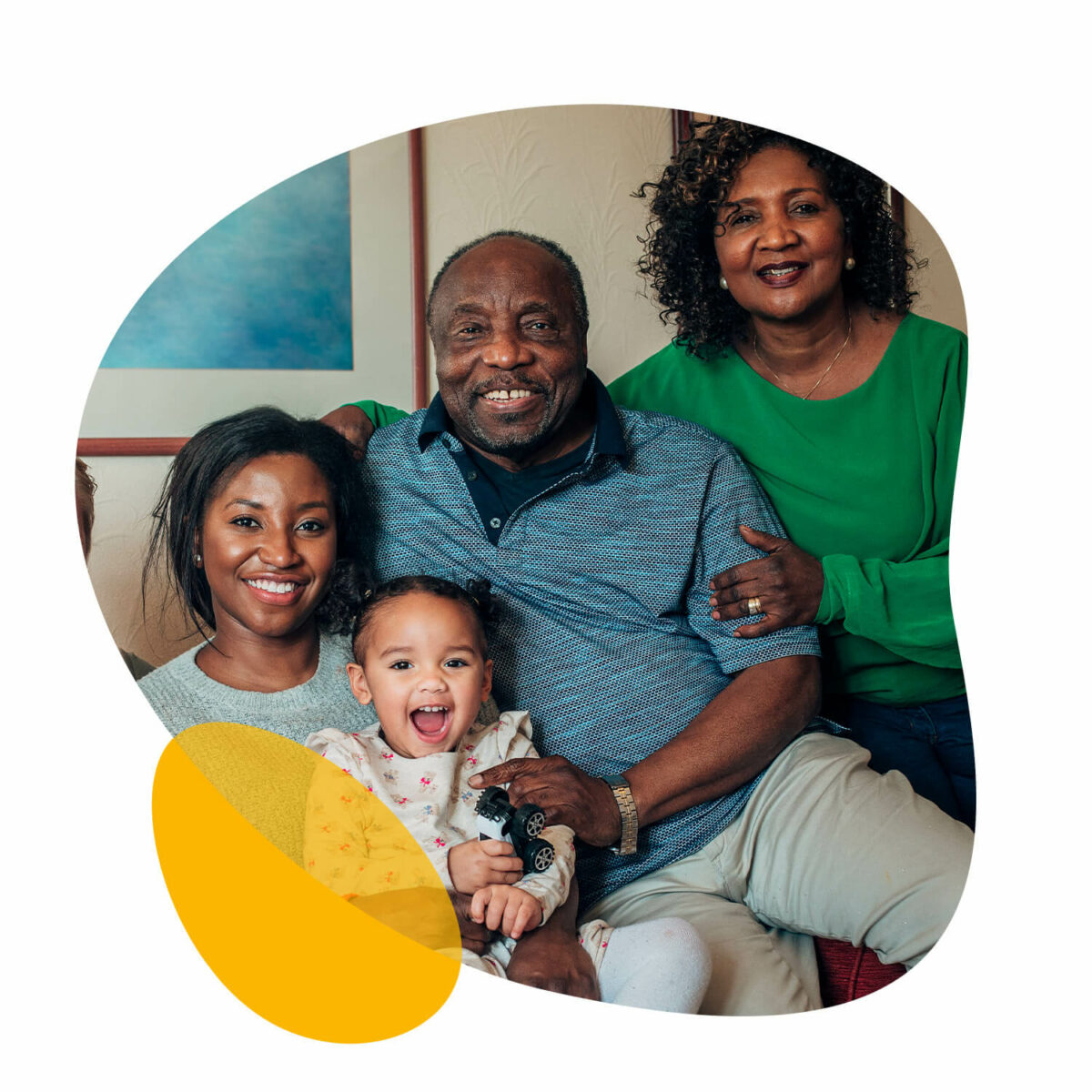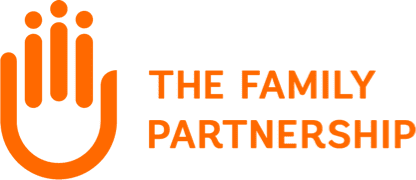about us
2Gen Approach
At The Family Partnership, we apply a whole family approach to ensure that the benefit of a program intervention is sustainable across generations.
We are upgrading our entire service delivery system to work with the whole family, providing families with holistic access to all the services and resources they need to build health and well-being intergenerationally.

How a 2Gen Approach Creates Change
We work with children and adults using a two-generation (2Gen) or whole family approach.
Research shows that interventions that work with the whole family (children AND their parents) are more effective than single-focus approaches (children only, parents only). Whole family approaches are also better because they ensure that the benefit of a program intervention is sustainable across generations. The Family Partnership is upgrading its entire service delivery system to work with the whole family, providing families with holistic access to all the services and resources they need to build health and well-being intergenerationally.
The Gears of 2Gen Change
Ascend at the Aspen Institute identifies the five “Gears” necessary for a two-generation approach.
The gears represent programs, resources and opportunities for families. The more gears to which families have access, the better they are able to overcome poverty and adversity, and promote family prosperity across generations.

Based on the Ascend Aspen Institute Two-Generation Graphic.
More Gears, Greater Impact
Each gear is supported with specific programs and resources. The gears are mutually reinforcing, so that the more of them that are in motion for a particular family, the greater the chances of preventing problems in the first place, and of dealing with them effectively if they arise.
The Family Partnership has developed a plan to put as many gears as possible into play for the children and families we serve. Our programs can work together to produce strong, sustainable, positive effects on family wellbeing.
| SOCIAL CAPITAL | EXAMPLE | THE FAMILY PARTNERSHIP PROGRAMS |
|---|---|---|
| Early Childhood Education | Quality, licensed and accredited early childhood education programs | The Family Partnership’s Therapeutic Preschools and Developmental Therapies |
| Health & Well-being | Access to health care, including mental health programming and services that address ACEs | Mental Health Therapy, Family Home Visiting, Developmental Therapies, Executive Functioning Across Generations |
| Social Capital | Supportive connections with local community members, Helpful connections outside the local community to important resources like jobs | Home Visiting, Family Workers in the Therapeutic Preschools, PRIDE |
| Economic Assets | Reducing debt, Increasing savings, Home ownership | Mobility Mentoring® |
| Postsecondary/Workforce | Advancing education, Help finding a job, Advancing on the career ladder | Mobility Mentoring® |
Researched-Based Practices
At The Family Partnership, we utilize methods proven through rigorous independent evaluation. We often lead in developing and testing new intervention methods.
Evidence-based Practices (EBP)
These program models/interventions have been subject to independent evaluation studies, usually with publication in a scientific journal, and have demonstrated their efficacy:
- Bounce Back (children’s mental health)
- Creative Curriculum (preschool)
- Cognitive Behavioral Therapy (mental health)
- Eye Movement Desensitization and Reprocessing (mental health)
- Healthy Families America® Affiliate (home visiting for healthy births, parenting)
- Mobility Mentoring® (economic mobility coaching)
- Multisystemic Therapy (youth/family mental health)
- Narrative Exposure Therapy (adult mental health)
- Theraplay (children’s mental health)
- Trauma-Focused Cognitive Behavioral Therapy (adult mental health)
Developmental Therapies
These evidence-based therapies for young children are used with Occupational, Physical, Speech, and Music Therapy and include:
- Zones of Regulation for self-regulation skills
- The Alert Program for self-regulation
- Sensory Integration Interventions for self-regulation and sensory processing
- Trauma Informed Yoga for self-regulation and motor control/coordination
- First Strokes Handwriting Program for fine motor and writing skills
- Size Matters Handwriting Program for fine motor and writing
- Writing Without Tears for fine motor and writing skills
- Sequential Oral Sensory Approach to feeding (SOS Approach)
- Beckman’s Oral Motor Program for feeding
- Kinesio taping for muscle stability and control
- Music Therapy
Speech and Language Therapies
These evidence-based therapies for young children include:
- Focused Stimulation
- Child Directed Speech
- Expansion
- Recasting
- Parallel Talk
- Visual Cues and Feedback
Evidence-Informed Practices (EIPs)
EIPs are program models/interventions that are aligned with what science tells us is effective with children and families, even if the particular model has not yet reached the “gold standard” in evaluation of an Evidence-Based Practice:
- Executive Functioning Across Generations
- Core Curriculum (preschool children and parents)
- Home Visiting Adaptation (home visiting)
- Parenting Group Adaptation (parent education)
- Intergen (economic mobility coaching)
- Mindfulness Meditation and Techniques (multiple programs)
These are custom programs designed by The Family Partnership.
*Evaluation research is underway to eventually move this program to the EBP category.
Every child who breathes the air in this country deserves the opportunity to develop their mind, body and spirit in an environment free of toxic stress.
John Till, Executive Vice President of Strategy and Innovation
Latest Updates and Resources
Explore the latest news from our team, gather insights and gain access to resources.
Our Partnerships
We are driving change with leading national organizations on using the latest research and ideas for new strategies to advance families health and well-being.
Stay connected and sign up.
Stay in the know and get the latest news, updates and information about our services and achievements.
"*" indicates required fields


